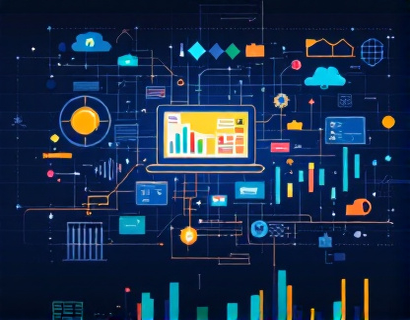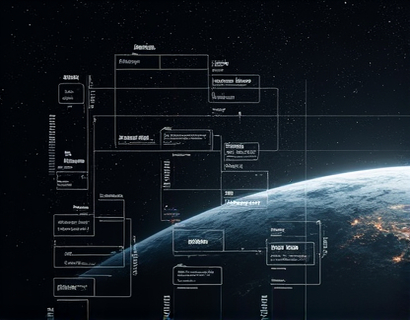Unlocking Market Success in Modern Ecosystems: Navigating Economic Prosperity and Opportunities
The landscape of modern economies has evolved significantly, transforming traditional markets into complex ecosystems where various stakeholders interact in intricate ways. This shift presents both challenges and opportunities for economists, business leaders, investors, and industry experts. Understanding the economic dynamics of these modern ecosystems is crucial for staying competitive and informed. This guide aims to provide strategic insights and detailed analysis to help professionals identify and capitalize on emerging market opportunities.
Modern ecosystems are characterized by interconnected networks of businesses, consumers, technologies, and regulatory frameworks. These ecosystems are dynamic, constantly adapting to technological advancements, changing consumer behaviors, and global economic trends. For instance, the rise of digital platforms has created new market structures where companies like Amazon and Google dominate through network effects and data-driven strategies. These platforms not only sell products but also influence the entire supply chain, from producers to end-users.
Understanding the Core Components of Modern Ecosystems
To navigate these ecosystems effectively, it is essential to understand their core components. At the heart of any ecosystem are the key players: producers, consumers, and intermediaries. Producers create value through goods and services, while consumers demand and utilize these offerings. Intermediaries, such as distributors and platforms, facilitate transactions and enhance market efficiency.
Another critical component is technology, which acts as the backbone of modern ecosystems. Technological innovations drive efficiency, create new business models, and enable data-driven decision-making. For example, blockchain technology is revolutionizing supply chain management by providing transparency and reducing fraud. Artificial intelligence and machine learning are transforming industries by automating processes and offering predictive insights.
Economic Dynamics in Modern Ecosystems
The economic dynamics within modern ecosystems are multifaceted. One of the most significant changes is the shift from linear to network economies. In a linear economy, value flows in a straight line from producer to consumer. In contrast, network economies thrive on connections and interactions, where value is created through relationships and collaborations. This shift has led to the emergence of platform-based businesses that leverage network effects to scale rapidly.
Network effects occur when the value of a product or service increases as more people use it. This phenomenon is evident in social media platforms like Facebook and messaging apps like WhatsApp. As more users join, the platform becomes more valuable to each individual user, creating a virtuous cycle of growth. For businesses, understanding and harnessing network effects can be a powerful strategy for market dominance and sustained growth.
Opportunities for Innovation and Growth
Modern ecosystems offer numerous opportunities for innovation and growth. One such opportunity lies in the gig economy, where traditional employment models are being complemented or replaced by flexible, on-demand work arrangements. Platforms like Uber and Upwork have disrupted industries by providing individuals with the ability to monetize their skills and time on a flexible basis. This shift not only creates new revenue streams but also fosters a more dynamic and adaptable labor market.
Another area of growth is in sustainability and circular economies. As environmental concerns become increasingly prominent, businesses are exploring ways to operate more sustainably. Circular economy models focus on reducing waste and reusing resources, creating new business opportunities in areas such as recycling, remanufacturing, and sustainable sourcing. Companies that adopt these practices not only contribute to environmental goals but also often find that sustainability can be a competitive advantage.
Navigating Regulatory Challenges
While modern ecosystems present numerous opportunities, they also come with regulatory challenges. Governments and regulatory bodies are grappling with how to oversee these new market structures, particularly in areas like data privacy, antitrust, and consumer protection. For instance, the European Union's General Data Protection Regulation (GDPR) sets strict guidelines on how companies handle personal data, impacting businesses operating in the digital space.
Staying compliant with evolving regulations is crucial for market success. Businesses must invest in legal and compliance teams to navigate these complexities. Additionally, engaging with policymakers and industry associations can help shape regulations that support innovation while protecting consumers. Proactive engagement can also provide insights into upcoming changes, allowing companies to adapt their strategies accordingly.
Strategies for Capitalizing on Market Opportunities
To capitalize on the opportunities presented by modern ecosystems, businesses need to adopt a strategic approach. Here are some key strategies:
- Embrace Innovation: Continuously invest in research and development to stay ahead of the curve. This includes exploring new technologies, business models, and market entry strategies.
- Build Strong Ecosystem Partnerships: Collaborate with other players in the ecosystem to enhance value creation. Partnerships can lead to shared resources, reduced costs, and access to new markets.
- Focus on Customer Experience: In a competitive ecosystem, customer satisfaction is paramount. Invest in understanding customer needs and preferences to deliver personalized and seamless experiences.
- Leverage Data Analytics: Utilize data to gain insights into market trends, consumer behavior, and operational efficiency. Data-driven decision-making can provide a significant competitive edge.
- Adapt to Change: Modern ecosystems are inherently dynamic. Businesses must be agile and willing to pivot their strategies in response to changing conditions, whether driven by technology, consumer preferences, or regulatory shifts.
By implementing these strategies, businesses can not only survive but thrive in the complex landscape of modern ecosystems. The key is to remain flexible, innovative, and customer-centric, while also being mindful of the broader economic and regulatory environment.
Case Studies: Successful Navigation of Modern Ecosystems
Examining real-world examples can provide valuable insights into successful navigation of modern ecosystems. One notable example is Netflix, which transformed from a DVD rental service to a leading streaming platform. Netflix's success can be attributed to its ability to innovate continuously, adapt to changing consumer preferences, and build a robust content creation strategy.
Another example is Airbnb, which disrupted the traditional hospitality industry by leveraging the sharing economy. Airbnb's platform connects travelers with local hosts, offering unique and personalized accommodation options. By focusing on user experience and building a strong community, Airbnb has become a household name, demonstrating the power of ecosystem thinking.
Conclusion
In conclusion, modern ecosystems present both challenges and opportunities for market participants. By understanding the economic dynamics, embracing innovation, building strategic partnerships, focusing on customer experience, leveraging data analytics, and adapting to change, businesses can navigate these ecosystems successfully. The companies that lead in this new landscape will be those that are agile, customer-focused, and forward-thinking. For economists, business leaders, investors, and industry experts, staying informed and proactive in this evolving environment is essential for achieving economic prosperity and capitalizing on emerging market opportunities.










































